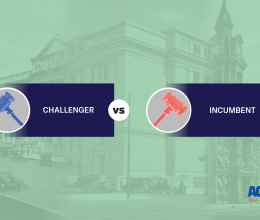The American Civil Liberties Union of Ohio supports a bipartisan bill which seeks to spare those with severe and persistent mental illness from facing execution in the state of Ohio. This bill came out of the Ohio Supreme Court Task Force, which recommends an end to this barbaric practice. Cruel and Unusual In 2002, the U.S. Supreme Court declared it unconstitutional to execute someone deemed mentally incompetent due to a diagnosed intellectual disability (formally referred to as mental retardation). This ruling paved the way for a 2005 U.S. Supreme Court decision that declared it unconstitutional to execute people who were minors at the time of their crime. Both decisions reflect an understanding of the Eight Amendment to the U.S. Constitution which prohibits cruel and unusual punishment. Just as with youth and those with a diagnosed intellectual disability, people with a severe and persistent mental illness lack the culpability required to receive a death penalty sentence. In other words, it is cruel and unusual punishment to put someone to death who does not or did not have the capacity to understand their crime or what their punishment means. Equal Protection for All Supporters of banning the execution of individuals with severe and persistent mental illness also cite the 14th Amendment to the U.S. Constitution, which promises “equal protection and due process” under the law. Individuals with severe and persistent mental illness are not receiving equal protection by the same bans that acknowledge diminished capacity and substantial impairment for individuals with intellectual disabilities. This right should apply to whomever experiences significant, diagnosed, diminished mental functioning as a result of any psychological disability.
Get more information on why the ACLU of Ohio supports the ban on executing people with mental illness.
U.S. Remains Far Behind Majority of the World on Death Penalty Practices Hundreds of countries around the globe and the United Nations have already banned the execution of the severely mentally ill. It is time for the United States to defend basic human rights and put an end to the inhumane practice of executing some of its most vulnerable citizens. In addition, the American Bar Association, National Alliance on Mental Illness, American Psychological Association, murder victims’ families, and Amnesty International also call for an end to executing those with persistent and severe mental illness. Those with Mental Illness Face Barriers to Justice The majority of people with mental illness are not violent, but instead are disproportionately victims of violence. Further stigma around their disability results in higher levels of conviction by juries.
The American Bar Association, National Alliance on Mental Illness, American Psychological Association, murder victims’ families, and Amnesty International also call for an end to executing those with persistent and severe mental illness.
Many people with severe and persistent mental illness who do commit crimes experience significant barriers to justice in the court system. Individuals with mental illness may give false confessions and aren’t able to adequately help in their own defense. These barriers make it extremely difficult for individuals with severe mental illness to receive a fair trial. This should not cost someone their life by using the death penalty as punishment. Support Ohio Senate Bill 162 Executing those with serious mental illness is a violation of the U.S. Constitution and standards of international human rights. It is time that the United States caught up with the rest of the developed world by putting an end to this cruel and inhumane practice. The state of Ohio has an opportunity to do this with Senate Bill 162. The ACLU of Ohio urges you to stand on the side of justice and let your state representatives know that you support SB 162.









